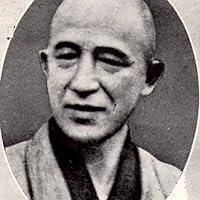
Keiji Nishitani
O Autorze
Keiji Nishitani was a prominent Japanese philosopher known for his contributions to the Kyoto School of philosophy and for bridging Western and Eastern thought. His works primarily focused on the intersection of Zen Buddhism and existential philosophy, exploring themes such as nothingness, being, and the human condition. Nishitani's philosophical inquiries were deeply rooted in the context of Japan's cultural and spiritual heritage, which he interpreted through the lens of modern existential challenges.
Nishitani's ideas gained significant attention through his influential books, where he elaborated on the relevance of Zen philosophy in contemporary philosophical discourse. He engaged with thinkers such as Nishida Kitaro, contributing to the development of a unique philosophical framework that emphasizes the importance of experience and practice in understanding reality. His legacy continues to inspire both scholars and practitioners interested in the dialogues between Eastern and Western philosophies.